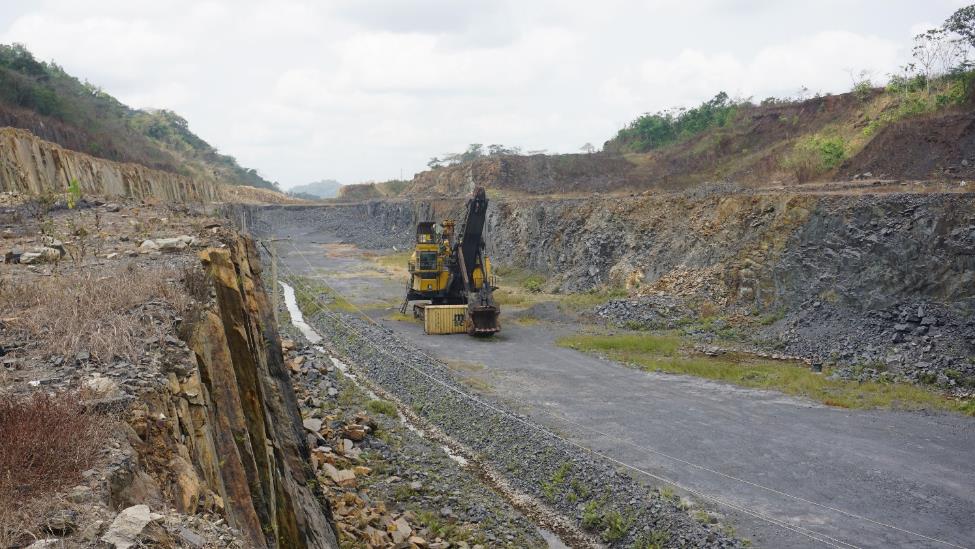FUAMAH, Bong – The China Union Mining Company is refusing to pay more than US$97,000 in overtime benefits that at least 62 redundant employees say the company owes them.
The company holds a 25-year Mineral Development Agreement, signed in January 2009 with the Liberian government, to mine iron ore near the town of Bong Mines in Fuamah District.
China Union’s concession area was once the operational site of the Bong Mining Company, a German company that left the country during the civil crisis. Wuhan Iron and Steel Corporation, one of China’s largest steelmakers, is a major China Union shareholder.
Former and current employees have complained about the company’s failure to pay overtime benefits since the company started mining on November 3, 2013. At the time they were fully employed, but they have since been laid off.
However, the company said part-time workers were not entitled to overtime benefits because they worked for sixteen days in each month as opposed to full-time employees who worked six days a week.
A letter written by the union representing local company employees, dated on November 3, 2013 asked the leadership of the company to address “burning concerns affecting the workers†including disputes over overtime payment. The workers also complained of the lack of safe drinking water or a bathroom at the job site.
In a letter to the management of China Union written on Dec. 6, 2013 letter, the union asked the company to pay overtime benefits for 19 employees they claim were accrued between 2011 to 2013.
In another letter from the workers’ union dated March 28, 2015, the workers complained that China Union was violating several provisions of the Collective Bargaining Agreement it signed with the United Workers Union of Liberia including provisions for overtime benefits, working hours, salary increments, among others. The Labour Ministry was also sent this letter.
China Union’s management denied it was required to pay overtime benefits in several letters sent to the workers’ union.
Advocacy on the part of workers for their overtime benefits to be paid intensified after the employees were made redundant as part of China Union’s efforts to accommodate for the drop in iron ore price. The company now refuses to comment on the affected employees’ claim.
In a written communication dated November 2, 2015, to the United Workers’ Union of Liberia and company workers’ union, China Union said the fall in international iron ore prices from US$140 per ton to about US$50 informed their decision to scale back operations.
“China Union also suffered a huge loss as a result of the drop in the price of iron ore and decided to implement the intermittent production until the price of the commodity rises to a reasonable level to resume production at full capacity,†the company said.
Due to financial losses, the company was forced to lay off many of its workers and reduce salaries. They claim 85.7 percent of Chinese workers were laid off, reducing the number of Chinese employees from 350 to 50.
China Union also said in the communication that it had laid off 82 Liberians and reduced the salary by 30 percent. The company noted that it was doing such in line with the Liberian labor law and the Collective Bargaining Agreement signed between the company and United Workers that whenever China Union reduces its production scale, it has the right to reduce the workforce of Liberians.
The affected employees claimed they were being unfairly treated by the company who refused to pay them benefits, in a communication dated December 29, 2016, to the office of the Labor Commissioner in Bong County.
Solomon Tweh, the spokesperson for the redundant employees who also worked for the company for two years and was affected, said workers on regular shift should have worked for eight hours every day. The number of affected workers has grown from 19 to 62.
“Instead, the company allowed them to work for nine hours a day, which accumulated to two hundred and thirty-four hours in a month,†Tweh said.
Tweh’s statement was corroborated by over eight other former employees who also said they had not been paid by China Union for the overtime hours worked.
Pay slips obtained from Tweh and several of the redundant employees, along with attendance sign in sheets, validated that the affected employees worked nine hours each day.
Moreover, ten current employees of China Union, who only spoke on the condition of anonymity for fear of being reprimanded by the company, also complained about the company not paying them overtime benefits.
According to Emmett Crayton, Assistant Minister for Trade Union Affairs and Social Dialogue at the Labor Ministry, China Union admitted owing the employees overtime benefits during a meeting held on January 9, 2017, at the company concession area.
Crayton explained that his office was set up to mediate disputes between workers and companies.
Crayton said China Union had clarified that, indeed, the redundant employees had worked for nine hours daily instead of eight, which according to him should not have happened.
Frankie Tyler and James D. Sorbor, acting president and deputy secretary of the local union were present in the meeting while Louis N. Kollie, assistant human resource officer represented the company.
The redundant employees were represented by John P. G. Mulbah and Solomon Tweh.
“The China Union management has been asked to provide the ministry with a listing of all former employees who falls in the category of regular shift to determine their benefits,†Crayton said.
Crayton said discussions with the company had been interrupted by Chinese New Year in February and would continue in March 2017.
However, on March 5, 2017, the company’s acting CEO, Li Zhixiang, wrote a letter to the labor minister, refusing to pay the overtime benefits, citing the effects of the less than ideal international market for iron ore and the stress this could place on the company.
“If more overtime fees are added, the salary will be increased in large scale, China Union will have to suffer from more loss, and China Union will be unable to continue to operate,†Zhixiang wrote.
The CEO claimed that the workers were not entitled to payment for the one-hour lunch break and had agreed to those conditions.
The company proposed revising working hours for the future by having the Liberian employees pay for the lunch provided by the company, with the working time reduced by one hour, or to have Liberian employees take the responsibility for bringing their own lunch.
However, the Decent Work Act states that “an employer shall give an employee who works continuously for more than five hours a meal interval of at least one continuous hour, for which time the employee shall be paid.â€
The law also states that “all work in excess of ordinary hours, including work in accordance with section 17.6 shall be paid at a rate not less than fifty percent above the normal rate for that work.â€
Both the labor law and the collective bargaining agreement the company signed with the workers’ union specified the normal working hours as 48 hours per week, which for the six-day workweek of China Union’s workers, would be eight hours every day.
Moreover, the agreement with the union allows employees working for more than five hours on a regular day’s work to have “a period of one (1) hour rest break inclusive of the day’s hours of work†(emphasis ours).
For Tweh, the company has the right to lay off its employees when necessary but it should fulfill its obligations to pay for overtime work.
“If China Union refuses to pay the affected employees their overtime benefits, a legal action will be instituted against the company to compel it to pay the benefits owed,†he said.
“The company owed me US$1,053 after working for 702 overtime hours and [I’m] unable to settle my children’s tuition,†Tweh said.
He said due to the redundancy, life has become unbearable for him and his family.
Morris Taye, China Union’s public relations officer, refused to comment about the overtime benefits claim by workers when contacted by The Bush Chicken.
“Management is presently focusing on resuming its operations in two to six months,†he said, adding that the company incurred huge losses as a result of criminals damaging some of the company installation including equipment and wires.
“The company’s entire installation is damaged by thieves and management is focusing on repairing it,†Taye said.
Since November 2015, the company has been communicating with the Labour Ministry and the local union that it has been experiencing unspecified financial losses related to the downturn in commodity prices
During such period, Liberia had an outbreak of the Ebola epidemic which affected every sector of the country’s economy.
As a result, of the 427 Liberians employed by the company in 2015, it laid off 302 between March 2016 and January 2017 and either dismissed or pensioned an additional 21. Only 104 Liberians are currently employed by China Union.
China Union said it has stopped production and its main focus is now safeguarding its equipment. As part of the shutdown agreement with the workers union, the company is operating a skeleton staff.
At the company’s concession area, operations are at a standstill. Only a few private security guards of the Loyal Protective Guard Service can be seen at various checkpoints providing security for the company’s properties.
Prince Korvah, assistant minister for Labour Affairs, when contacted, said a roundtable meeting is scheduled with the China Union management for April 13 or 14 at the concession, noting “citation regarding the meeting will be sent to the company management by the close this week.â€
“The redundant workers and representatives from the United Workers Union of Liberia will also be in attendance to find an amicable solution to the situation,†Korvah said.
This story was produced in collaboration with New Narratives and the Thomson Reuters Foundation with funding from German Development Cooperation. The funder had no say in its content.





